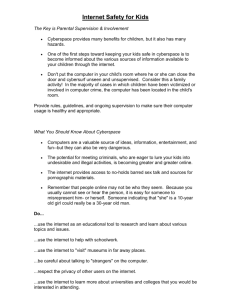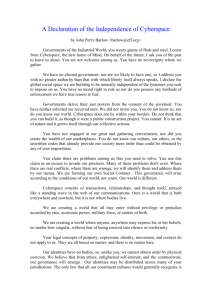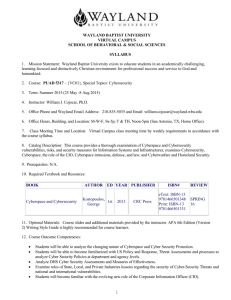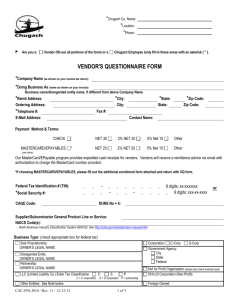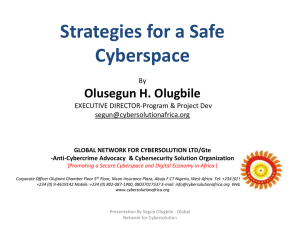Don`t Enable Cyber War
advertisement
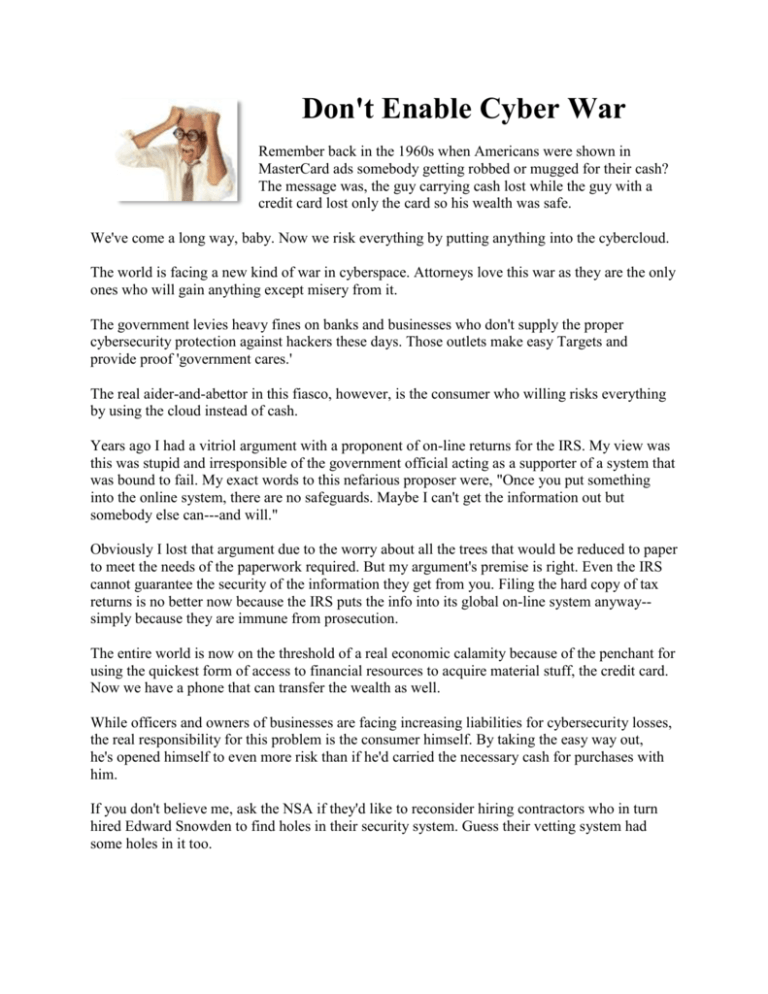
Don't Enable Cyber War Remember back in the 1960s when Americans were shown in MasterCard ads somebody getting robbed or mugged for their cash? The message was, the guy carrying cash lost while the guy with a credit card lost only the card so his wealth was safe. We've come a long way, baby. Now we risk everything by putting anything into the cybercloud. The world is facing a new kind of war in cyberspace. Attorneys love this war as they are the only ones who will gain anything except misery from it. The government levies heavy fines on banks and businesses who don't supply the proper cybersecurity protection against hackers these days. Those outlets make easy Targets and provide proof 'government cares.' The real aider-and-abettor in this fiasco, however, is the consumer who willing risks everything by using the cloud instead of cash. Years ago I had a vitriol argument with a proponent of on-line returns for the IRS. My view was this was stupid and irresponsible of the government official acting as a supporter of a system that was bound to fail. My exact words to this nefarious proposer were, "Once you put something into the online system, there are no safeguards. Maybe I can't get the information out but somebody else can---and will." Obviously I lost that argument due to the worry about all the trees that would be reduced to paper to meet the needs of the paperwork required. But my argument's premise is right. Even the IRS cannot guarantee the security of the information they get from you. Filing the hard copy of tax returns is no better now because the IRS puts the info into its global on-line system anyway-simply because they are immune from prosecution. The entire world is now on the threshold of a real economic calamity because of the penchant for using the quickest form of access to financial resources to acquire material stuff, the credit card. Now we have a phone that can transfer the wealth as well. While officers and owners of businesses are facing increasing liabilities for cybersecurity losses, the real responsibility for this problem is the consumer himself. By taking the easy way out, he's opened himself to even more risk than if he'd carried the necessary cash for purchases with him. If you don't believe me, ask the NSA if they'd like to reconsider hiring contractors who in turn hired Edward Snowden to find holes in their security system. Guess their vetting system had some holes in it too. Do not believe the media flak that this risk is new. If I could ID the problem almost 30 years ago, it isn't that new. The problem then, as now, is government needs to give you the impression the new technology is safe. Remember all the old movies where the bad guys were always after someone else's gold? The problem was the weight. It was simply too hard to make a fast getaway when burdened by pounds of gold--whether nuggets, dust or refined ingots. But the same went for people who earned it by working. You had to have really strong belts and packs when you went to town just to hold the weight of the gold. So government devised fiat--paper money with the promise it was backed by gold bullion, a mental safety net for the people who had to make the change at the time. In time it moved to checks to negate having to print and distribute that cash. The mental change is progressive. Now everything is being sent to the cloud--even your banking information when you pay by check at places that have instant transfer--and that's where the big-time thieves have moved too. Cyberspace has advantages for the evil-doers. All your information is there and the thief doesn't have to leave home to access it. Insurance companies, facing mounting losses from cyberspace attacks, are now putting exclusion clauses into policies. These clauses exempt them from covering "disclosure of confidential or personal information" by the entity they are insuring. During research I found the total losses in the area not known. It is very hard to determine because almost everything you own is really at risk these days. Very few items are exempt from exposure. Family recipes have even been hacked because they can be used to obtain even more information about you. Under government regulation, everything about you they receive will be put into the cloud. What is known is this method was instituted by governments intent on streamlining their methods. The consumer merely followed suit. Once it became the norm of government, thieves had an ally in the process. Governments, to protect themselves, excluded themselves from liability--EVEN BEFORE they employed it. Snowden demonstrated publicly how weak their worthless "assurances" of invincibility really were but they are exempt from their own shortfalls. You are not. We may be stuck with using the cloud in those "official" arenas but everyplace else, steer clear as it is a war zone. The cloud is a great place until you weigh the risks of using it. Somehow carrying cash instead of a credit card doesn't seem that awful anymore, despite what the old MasterCard ads told us. "I have sworn on the altar of God eternal hostility to every form of tyranny over the mind of man."--Thomas Jefferson

